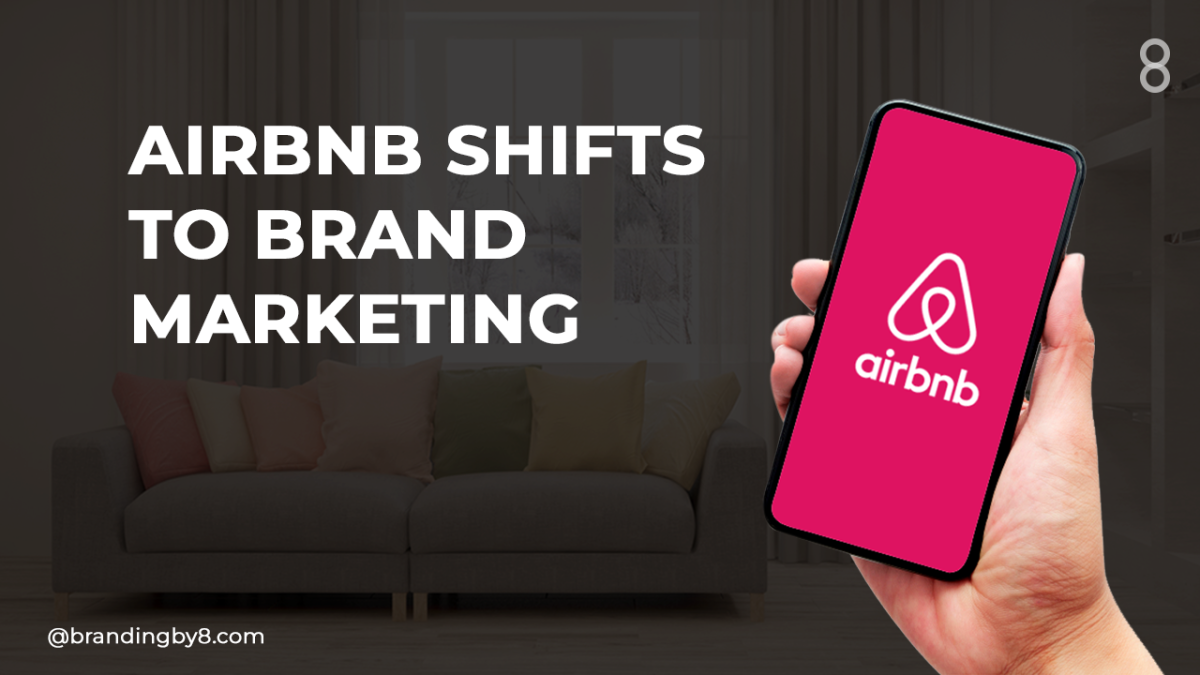Mar 7, 2021

The pandemic brought to light, for Airbnb, that after slashing its outlay by more than half, did not impact their online traffic. The discovery led to significant cost-cutting on performance marketing and focusing more on brand marketing.
Brand marketing focuses on establishing an emotional connection to manifest customer loyalty, while performance marketing is more concrete and revolves around data and lead generations. But, you need to speak his language for a customer and tell him a story he will not forget. It is crucial to connect with the audience personally, and brand marketing is the soul of branding as it creates the pathway to purchase through emotional connections.
Airbnb gauged the customers’ state of mind and went to great lengths to address their emotions. Given the uncertainty of travel and impending pandemic gushes, travelers were reluctant to make new reservations. The company introduced a blanket refund policy offering last-minute cancellations and full refunds. There were chaos, confusion, and anger among consumers and hosts.
In the beginning, the company worked hard to reassure its customers and took care of their apprehensions, thus encouraging hesitant customers to proceed with bookings. This was a brave step in brand marketing that augmented credibility and prompted an emotional response from the consumer, stimulated customer loyalty, and influenced purchase; they excelled in their plan when companies struggled to stay afloat.

Airbnb became the hero of all communication, thus carving a brand identity and emphasizing the organization’s values through their brand’s personality. Airbnb won the deserved integrity through a strong brand marketing approach that led them to win customer loyalty amidst economic mayhem.
The Airbnb annual report revealed a significant decline in performance marketing spending, such as online bidding and search marketing, compared to brand marketing such as TV and the Olympic Games’ sponsorship. Marketing represented 14.2% of revenue in 2020, compared with 23.7% in 2019, as the company cut costs drastically.
Airbnb was built on passion, gut, and determination with a humble start that metamorphosed into a giant travel industry entity. Ever since the Airbnb strategy has been closely observed by many, their shift from performance marketing to brand marketing is making waves. The company mentioned that the shift in marketing strategy was material, stating further that the reduction in performance marketing focuses on brand marketing. Airbnb’s agencies include Droga5 for creative and Essence for media; Shifting spend into brand and PR.
This move will be monitored closely by other agencies and advertisers as performance marketing has been very effective lately, especially since online disruptors have used data-driven targeting on digital platforms such as Google, Facebook, and Amazon to boost sales growth.
The company also mentioned that this shift was to show that the company’s strategy had evolved, revealing the intrinsic strength of the brand character. The last three months of 2020 witnessed a significant comeback of all lost traffic, and all of it was direct or unpaid. Airbnb also mentioned that they rely on “unpaid” search engine optimization; backing it up with the fact that their SEO results have been adversely affected by the launch of Google Travel and Google Vacation Rental Ads, impacting the prominence of their platform in organic search results for travel-related terms and placement on Google.
The company shifted to a full-funnel marketing approach, resulting in as much voice as other major travel companies combined. As part of its brand marketing impetus, Airbnb launched its biggest brand campaign in five years, “Made possible by hosts”, at the beginning of 2021. It features Airbnb hosts and is designed to “inspire more people” to rent out their properties as the coronavirus lockdowns ease, and consumers start traveling again.
“Even though the Airbnb brand is main-stream, the idea of hosting is not,” the company said. As part of the company’s brand-building strategy, they have decided to put 9.2m Airbnb shares in an endowment fund to reward hosts and let them “share in the success”; strengthening their brand investment plan to encourage buyers.

The annual report outlined how Airbnb sees the differences between brand and performance marketing.
“Brand marketing increases awareness among potential hosts and guests, helping them understand the benefits of hosting and booking stays and experiences, and what makes these stays and experiences distinctly Airbnb,” the report said.
“While performance marketing drives additional traffic from high-intent prospective guests, the strength of the Airbnb brand and our communications strategy allows us to be less reliant on performance marketing.” They intend to use performance marketing where it is economically viable and marks a higher rate-of-return.
The stock market prospectus stated that performance marketing also faces risks around data and privacy because of constant global regulations. A marketing platform should constantly be reassessed to confirm its credibility for driving the business forward, and brand marketing has proven beneficial to brands time and again.
Brian Wieser, global president of business intelligence at Group M, the media-buying arm of WPP, said there was a rationale for Airbnb to switch from performance marketing to brand marketing and public relations.
